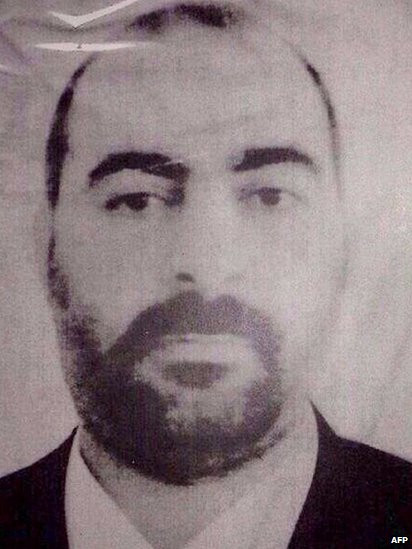Iraq Crisis: Who is Isis Leader Abu Bakr al-Baghdadi?

As terror group Isis (Islamic State of Iraq and the Levant) is back in the headlines after seizing Iraq's second largest city of Mogul and looting $429m (£255m), IBTimes UK looks at the jihadist group's leader Abu Bakr al-Baghdadi.
It is believed al-Baghdadi was born in Samarra, north of Baghdad, in 1971 and joined the insurgency that erupted in Iraq soon after the 2003 US-led invasion.
His real name is believed to be Awwad Ibrahim Ali al-Badri al-Samarrai. He holds degrees in Islamic Studies, including poetry, history and genealogy, from the Islamic University of Baghdad.
He emerged as the leader of AQI (Al-Qa'ida in Iraq) in 2010, after its former leaders were killed in an attack by US and Iraqi troops.
In 2013, al-Baghdadi released an audio statement in which he announced that AQI and Jabhat al-Nusra terror groups were officially merging under the name "Islamic State of Iraq and Al-Sham (the Levant)."
Al-Baghdadi also sought to merge with al-Nusra Front - the official al-Qaeda affiliate in Syria - which rejected the deal. The two groups have operated independently since.
Deadly Attacks
Al-Baghdadi has claimed responsibility for many of the deadly attacks which has killed hundred of civilians.
Between March and April 2011, Isis claimed to have carried out under al-Baghdadi's command 23 attacks south of Baghdad.
In May 2011, al-Baghdadi claimed responsibility for an attack in Hilla, central Iraq, in which 24 policemen were killed and 72 wounded.
In October 2011, he was designated as a terrorist by the US, which offered $10m (£6m) for information about his whereabouts.
The invisible sheikh
Baghdadi has the reputation of a highly organised and ruthless battlefield tactician who rarely appears in the media.
There are only two authenticated photographs of him, and unlike al-Qaeda leaders such as Osama Bin Laden and Ayman al-Zawahiri, he does not appear in video messages.
The leader rarely reveal his face, even to the members of Isis.
Al-Baghdadi is believed to often wear a mask; for this reason he has been dubbed "the invisible sheikh".
On 2 December 2012, Iraqi officials claimed they had captured al-Baghdadi in Baghdad following a two-month tracking operation. This claim was later dismissed.
© Copyright IBTimes 2025. All rights reserved.






















